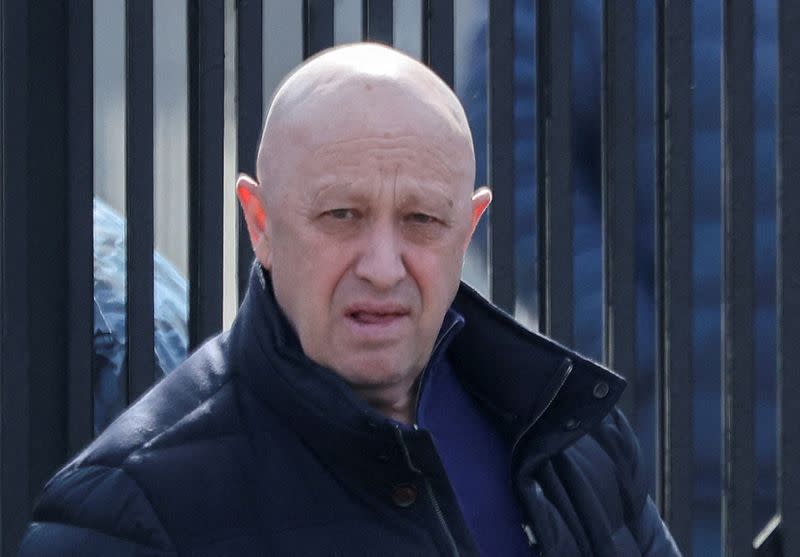Russian mercenary boss slams army 'clowns' as he marks birthday at training camp
MOSCOW (Reuters) - Russia's most powerful mercenary, Yevgeny Prigozhin, said his Wagner group would fight on in Ukraine only if his men got a separate section of the front without having to depend on "clowns" who ran swathes of the Russian armed forces.
Celebrating his 62nd birthday on Thursday at a training camp, Prigozhin also confirmed that his men would finally leave the eastern Ukrainian city of Bakhmut on June 5 after handing it to the Russian army. The Wagner mercenaries captured the devastated city in late May after months of grinding warfare.
"If the whole chain (of command) is 100% failed and will only be led by clowns who turn people into meat, then we will not participate in it," said Prigozhin, known for his blunt, often expletive-laced commentary on the conduct of the war.
"Beautiful isn't it?" he said to Russian reporters with a smile, gazing at a night sky lit up with blasts and red flares against bursts of automatic gunfire from his mercenaries.

He then engaged in a detailed description of the prosthetic legs which his wounded men have received, including those who continued to fight.
Prigozhin said his men wanted to rest at camps in Russian-controlled Ukraine for around a month and then things would become clearer.
"It has been a tough year. Then we'll see how it goes," he said.
The restaurateur-turned-mercenary has gained widespread notoriety during the 15-month war in Ukraine, and has regularly insulted President Vladimir Putin's top military brass, especially Defence Minister Sergei Shoigu and Chief of the General Staff Valery Gerasimov, over their performance.
Neither Shoigu or Gerasimov have responded to his insults in public.
Prigozhin, who quipped last week that his nickname should be "Putin's butcher" rather than "Putin's chef", said on Wednesday he had asked prosecutors to investigate whether senior Russian defence officials had committed any "crime" before or during the war in Ukraine.
